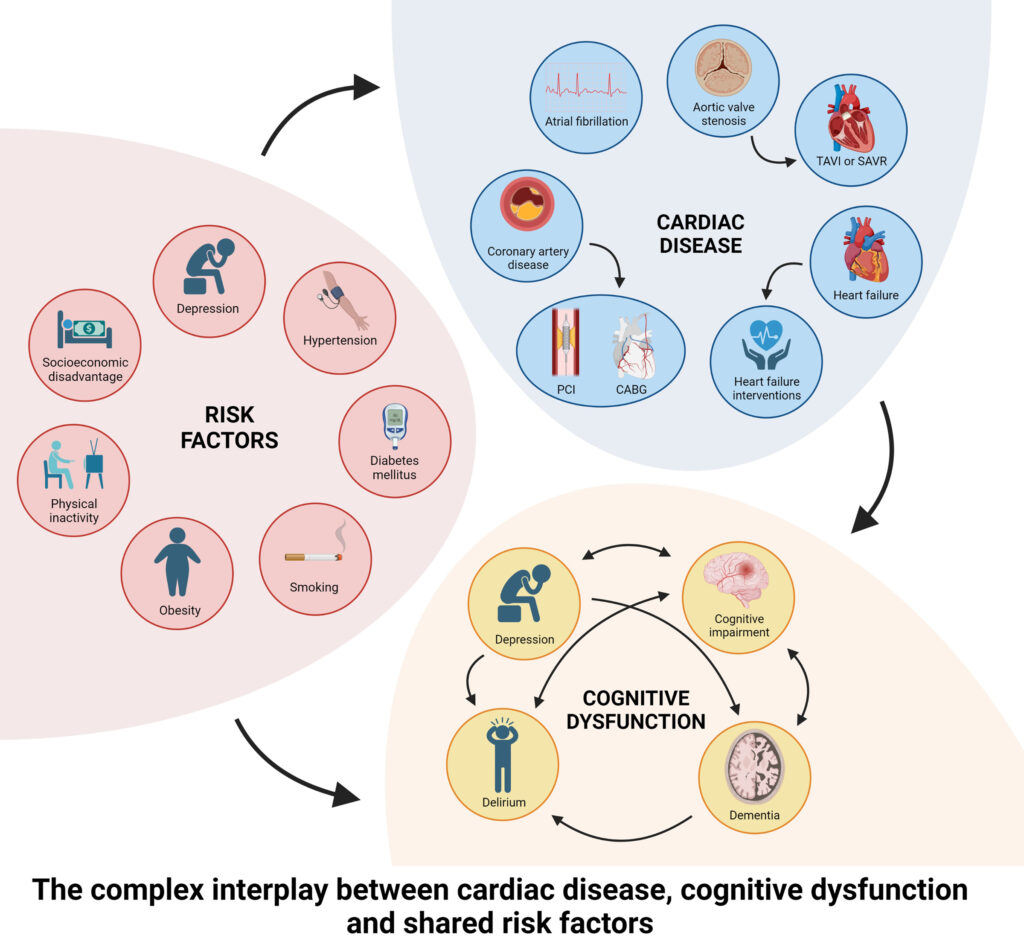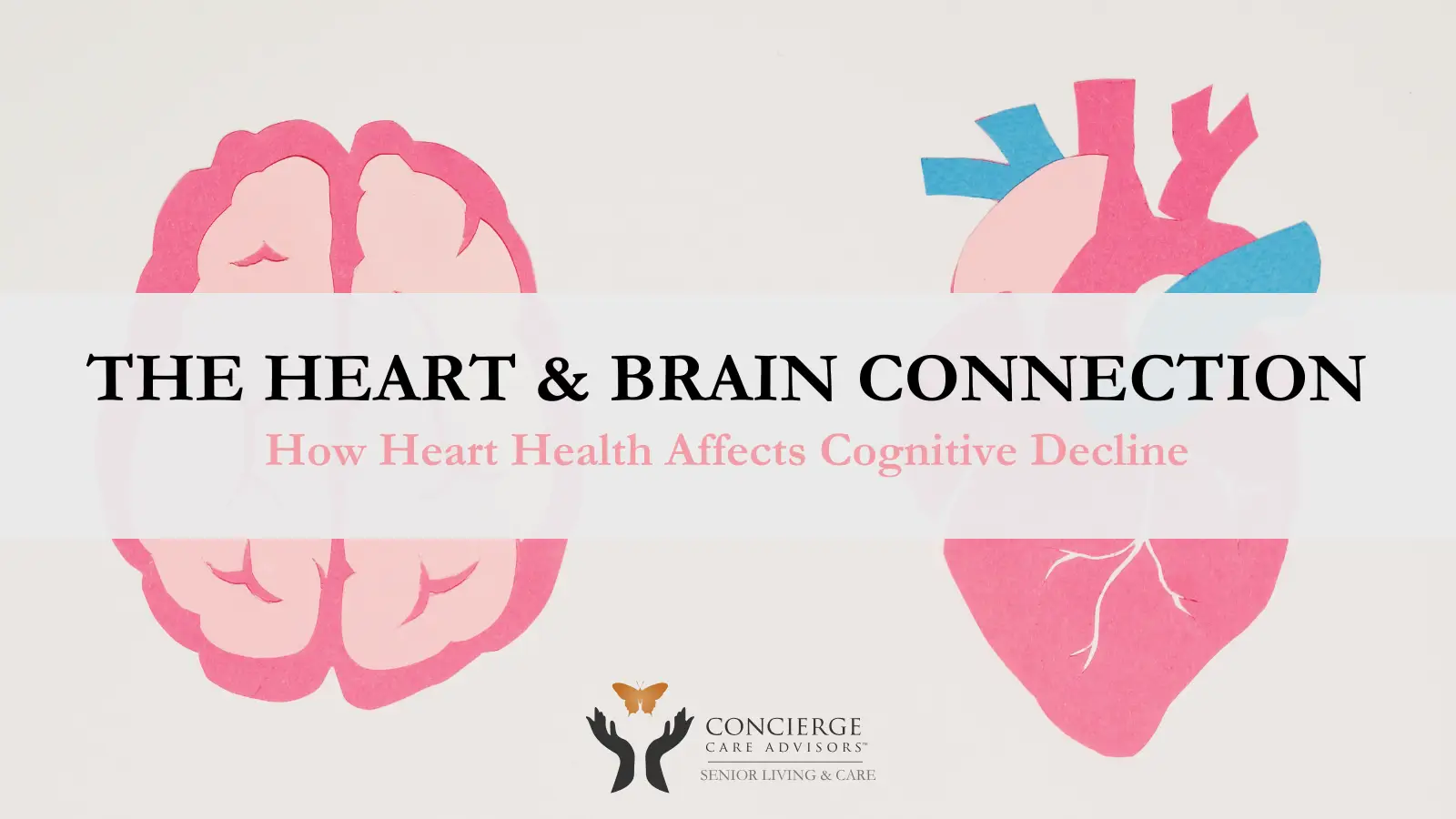Understanding the Link Between Heart Health and Cognitive Function
The link between heart health and brain function is crucial yet often overlooked. Cardiovascular disease impacts more than just the heart—it can significantly affect cognitive abilities and contribute to conditions like dementia.
The American Heart Association (AHA) recently issued a scientific statement highlighting the connection between heart conditions such as heart failure, atrial fibrillation, and coronary heart disease and an increased risk of cognitive decline. The AHA suggests a bidirectional relationship between the heart and brain and underscores the importance of early intervention. By addressing cardiovascular health early on, one may be able to deter the onset or progression of cognitive impairment later in life.
While more research is needed to determine the extent to which effectively managing cardiovascular disease positively impacts cognition, current findings underscore the importance of the heart-brain health connection. Preventive care and lifestyle changes may help individuals age well, reducing their risk of developing dementia and promoting healthier aging.
How Cardiovascular Disease Leads to Cognitive Impairment
Cardiovascular disease includes conditions such as heart disease, stroke, heart failure, and arrhythmias. These diseases damage blood vessels, reducing circulation and causing tissue damage throughout the body—including the brain. When the brain doesn’t receive enough oxygen and nutrients due to poor blood flow, an individual’s cognitive abilities decline.
The AHA reports that cognitive impairment is common among individuals with cardiovascular disease, with one in three patients at cardiology clinics showing signs of cognitive decline. In addition, studies suggest that nearly 25% of dementia cases can be attributed to cardiovascular risks.
Vascular Dementia: A Clear Link Between Heart and Brain Health
Vascular dementia, the second most common type of dementia, develops from reduced blood flow to the brain. This condition can result from a stroke that blocks an artery or other circulatory issues that impair blood flow and deprive the brain of oxygen. The Mayo Clinic emphasizes that the same risk factors for heart disease and stroke—such as diabetes, high blood pressure, high cholesterol, and smoking—also increase the risk of vascular dementia. Fortunately, managing these factors can lower the chance of developing the condition.
The Brain-Heart Connection Explained
The brain depends on a healthy cardiovascular system to deliver oxygen and nutrients through blood vessels. Cardiovascular disease, however, can block or narrow these arteries, reducing blood flow to the brain and impairing mental functions. This can cause symptoms such as memory loss, confusion, and difficulty solving problems.
The growing overlap between neurology and cardiology emphasizes that healthy lifestyle habits, such as regular exercise and a nutritious diet, benefit both the heart and brain. “Whatever you do for your heart is likely to be good for your brain as well,” says Dr. Zaldy Tan, director of the Cedars-Sinai Memory and Aging Program.
Shared Risk Factors Between Cardiovascular Disease and Cognitive Decline
Several key risk factors affect both cardiovascular and brain health:
- High blood pressure (hypertension): Damages arteries, reducing blood supply to the brain.
- High cholesterol: This leads to plaque buildup in arteries (atherosclerosis), restricting circulation.
- Diabetes: Causes vascular damage, reducing the brain’s ability to function effectively.
Addressing these risk factors early can reduce the risk of both heart disease and cognitive decline. Lifestyle changes combined with medical care offer powerful ways to protect long-term brain and heart health.

This image from AHA Journals illustrates the interconnection between cardiac disease and cognitive function, as well as contributing risk factors.
Lifestyle Strategies & Medical Care for Cardiovascular and Cognitive Health
Maintaining cardiovascular health through lifestyle choices plays a vital role in preserving brain function. Here are some effective strategies:
- Healthy Diet: Focus on fruits, vegetables, and whole grains to support heart and brain health.
- Exercise: Activities like walking, swimming, or yoga improve circulation and brain function.
- Avoid (or Quit) Smoking: Smoking damages blood vessels and increases the risk of cardiovascular disease and dementia.
- Stay Socially and Mentally Active: Puzzles, reading, and social interaction can help maintain cognitive abilities.
Medical care also plays a critical role, with routine screenings and early interventions offering opportunities to manage risks before they impact daily living. Key interventions include:
- Blood Pressure Management: Reduces the risk of strokes and protects brain function.
- Cholesterol and Blood Sugar Control: Proper management of cholesterol and diabetes reduces vascular damage and supports brain health.
- Cognitive Screening and Neuroimaging: MRI scans and regular cognitive assessments help detect problems early, enabling timely treatment.
Caregivers are essential partners in this process, supporting seniors in adopting healthier habits and monitoring for early signs of cognitive decline. Proactive management can significantly enhance the well-being of older adults, making it possible to enjoy a higher quality of life for longer.
How Concierge Care Advisors Can Help
Navigating the complexities of aging can be overwhelming, but you don’t have to do it alone. At Concierge Care Advisors, we specialize in helping families find the right care solutions to fit their needs. Whether you’re seeking guidance on senior living communities or anything else related to senior living and well-being, our experienced Senior Living Advisors provide personalized support every step of the way.
Here’s how we can support you:
- Senior Living Placement: We’ll help you find the right community to meet your needs.
- Caregiver Support: Get access to resources and guidance for everything senior-living-related.
- Referral Network: Tap into our extensive network of professionals, including healthcare, legal, and financial experts.
Take the first step towards better care today. Call us today at 855-444-7364 or complete this form for a free consultation. Let us help you and your loved ones find peace of mind through personalized care solutions designed to support healthy aging and well-being.

























